Speaking at the discussion session, Deputy Nguyen Thi Le, Deputy Secretary of the City Party Committee and Chairwoman of the Ho Chi Minh City People's Council, said that this is a fundamental law in allocating and effectively using national resources and promoting sustainable development in the new situation. Therefore, the law needs to clearly demonstrate the spirit of decentralization and decentralization, along with enhancing accountability. As the largest economic center in the country, contributing about 25-27% of the national budget each year, Ho Chi Minh City always wants to have a suitable financial and budgetary mechanism to be more proactive in investment and development, improving the quality of life for the people, and continuing to contribute more to the country.
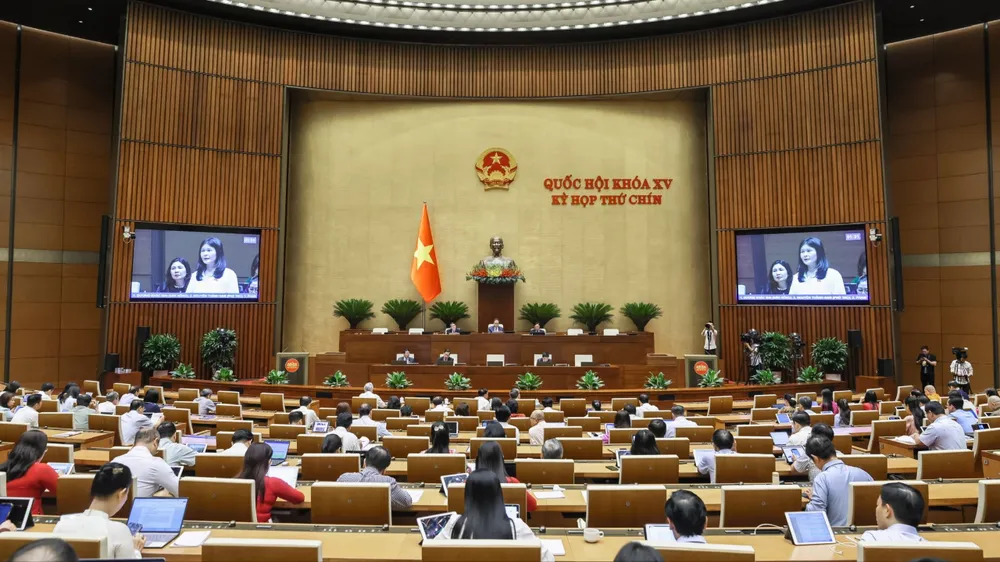
In practice, after nearly 10 years of implementing the State Budget Law (NSNN) 2015, many localities, especially large cities such as Ho Chi Minh City, are facing difficulties in balancing the budget, implementing public investment, as well as being proactive in managing finance and budget. One of the reasons is that the current legal framework does not create enough space for localities to decide on issues arising from dynamic practices.
Deputy Nguyen Thi Le suggested that the draft law needs to clearly state: the Central Government plays a leading role, but localities must be proactive, creative, and have the right to allocate resources in accordance with reality; it is necessary to expand the rights of the People's Council in deciding on the domestic regulation rate, decentralizing spending tasks, and using budget surpluses.
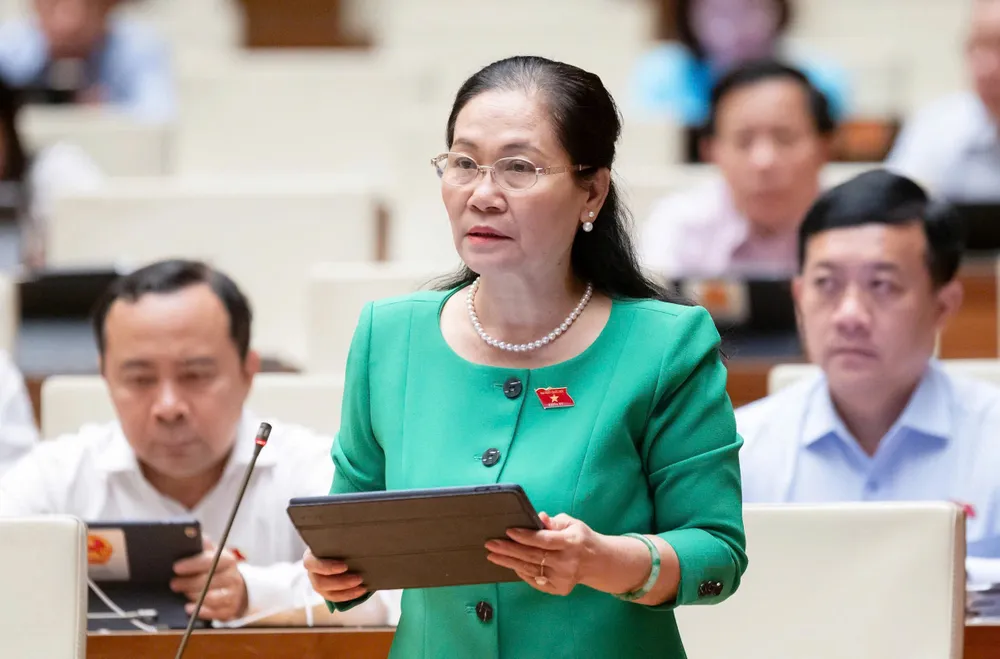
Regarding the regulations on budget deficit and outstanding loan limit of local budgets, the Deputy said that it is necessary to be flexible according to fiscal capacity and debt repayment ability. The draft currently stipulates the local debt ceiling according to the percentage of revenue enjoyed according to decentralization (80% or 120%). However, Deputy Nguyen Thi Le said that this calculation method does not accurately reflect actual capacity, and is not suitable for localities with large economic scale and high capital mobilization capacity such as Ho Chi Minh City. Ho Chi Minh City is a locality with high financial capacity, credit reputation and capital mobilization capacity, and can completely borrow from ODA and issue government bonds to invest in key projects. Therefore, the Chairman of the Ho Chi Minh City People's Council proposed that in addition to the decentralized revenue criteria, it is necessary to add quantitative criteria such as GRDP, debt repayment capacity, credit rating and capital mobilization capacity in the financial and credit market. The National Assembly 's permission for localities to have deficit spending to invest in key projects with regional spillover effects also needs to be more clearly legalized.
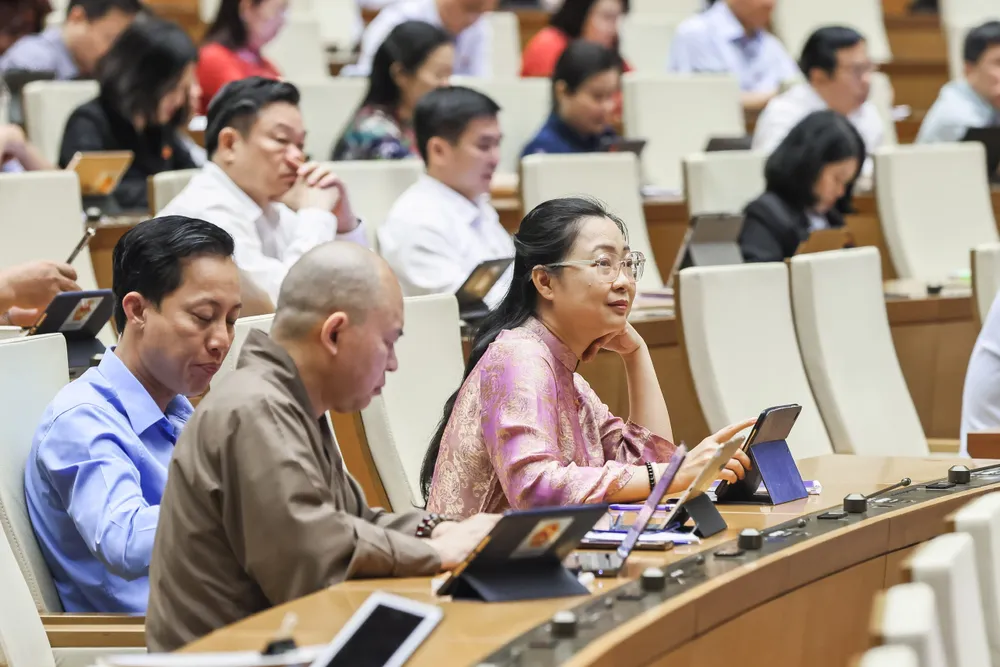
Regarding the extra-budgetary state financial fund, the Chairman of the Ho Chi Minh City People's Council proposed that, in addition to the funds established by the Central Government, localities should be allowed to establish a number of extra-budgetary financial funds (according to the principles of autonomy, self-responsibility, and transparency) to meet specific needs, such as: digital transformation development fund, urban infrastructure investment fund, science and technology development fund, innovation support fund, etc. if they ensure the principles of transparency, no overlapping functions, have independent sources of revenue, and are decided by the People's Council. This is the basis for localities to mobilize social resources, reducing pressure on the State budget.
The Chairman of the HCMC People's Council also proposed to strengthen the actual power of local People's Councils in deciding on the budget; it is necessary to supplement regulations so that provincial People's Councils have the right to decide on the internal division ratio between budget levels; have the right to decide on transferring resources, using surpluses, allocating capital for breakthrough programs, and unplanned situations; have the right to approve key projects that have a great impact on local socio-economic development; have the right to decide on investing in projects outside the medium-term plan if there is a legal source.
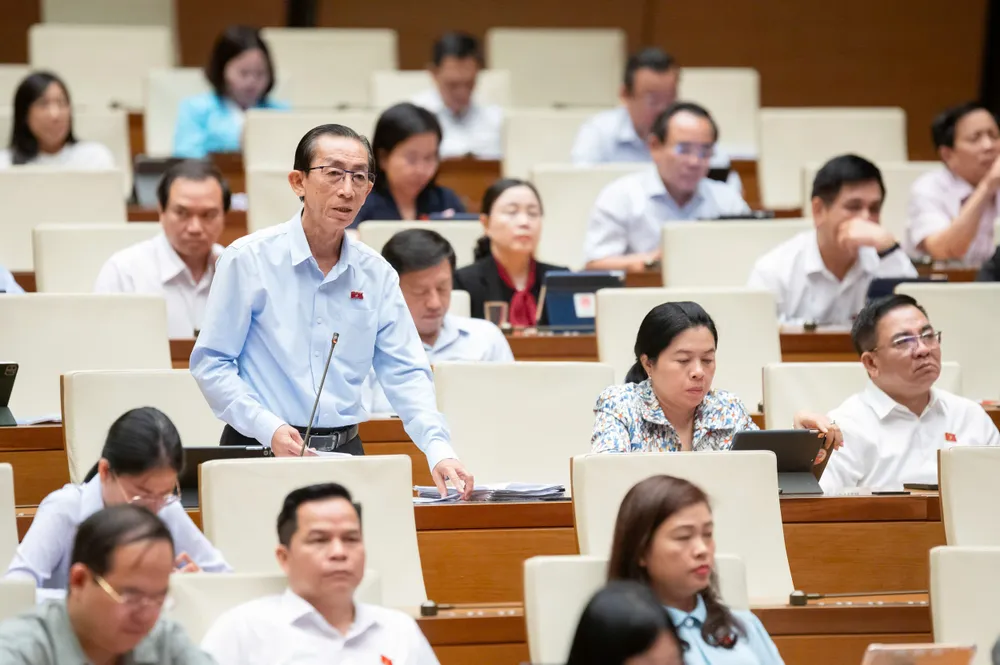
Deputy Tran Hoang Ngan (HCMC) also agreed with the adjustment to increase the outstanding loan balance of the local budget to meet the requirements for investment and development in the current new situation. The Deputy suggested that the National Assembly and the Government consider further for special urban areas such as Hanoi and HCMC, which have many large projects, especially urban railway projects, so it is necessary to increase the outstanding loan balance of the local budget.
Regarding the revenue sharing percentage between the central budget and local budget, Deputy Tran Hoang Ngan mentioned that the draft regulation stipulates that for land use fees and land rents, if localities do not receive additional balance, the central budget will receive 30% and the local budget will receive 70% (currently, localities are receiving 100%).
"I also understand that we want to enhance the leading role of the central budget, but given the time and context, I suggest the National Assembly consider it," said Deputy Tran Hoang Ngan.
Delegate Tran Hoang Ngan gave an example, according to the estimated investment plan for 2026-2030, Ho Chi Minh City needs public investment resources of 1.1 million billion VND. Of this, land revenue is about 550,000 billion VND. If the central budget regulates only 30% of land use fees and land rent, Ho Chi Minh City will have a revenue shortfall of 165,000 billion VND in 5 years, meaning a revenue shortfall of 33,000 billion VND each year. This will affect the city's public investment implementation plan in the 2026-2030 period, while the city is in dire need of resources to implement a series of large projects such as: the urban railway project in 10 years will need about 40 billion USD, in the first 5 years is 16 billion USD; resources to connect with Binh Duong, Ba Ria - Vung Tau; expand national highways, build bridges...
"In Ho Chi Minh City's investment resources, land revenue occupies a very important position, so we propose that the Central Government consider that in the immediate future, maybe in the next 10 years, we should not collect this amount, or should only collect at the rate of 5-10%," Deputy Tran Hoang Ngan suggested.
Speaking at the discussion session, some delegates also said that the land use fee and land rent should be enjoyed 100% by localities to have resources for investment and development. Many delegates also wondered about the ratio of central and local budget division, suggesting reconsideration to avoid the situation where provinces and cities suffer from large budget deficits when the law is promulgated...
Source: https://www.sggp.org.vn/de-xuat-cho-tphcm-duoc-noi-tran-no-cong-de-dau-tu-cac-du-an-trong-diem-nhat-la-duong-sat-do-thi-post796828.html





![[Photo] Prime Minister Pham Minh Chinh meets with Hungarian President Sulyok Tamas](https://vphoto.vietnam.vn/thumb/1200x675/vietnam/resource/IMAGE/2025/5/29/dbcaa73e92ea4448a03fe1d0de6d68e8)
![[Photo] Vietnamese and Hungarian leaders attend the opening of the exhibition by photographer Bozoky Dezso](https://vphoto.vietnam.vn/thumb/1200x675/vietnam/resource/IMAGE/2025/5/29/94d8ceca5db14af3bf31285551ae4bb3)

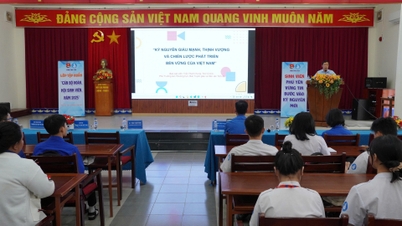




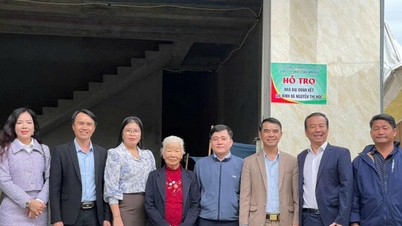

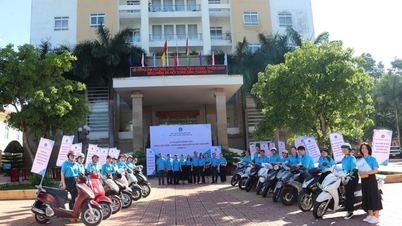







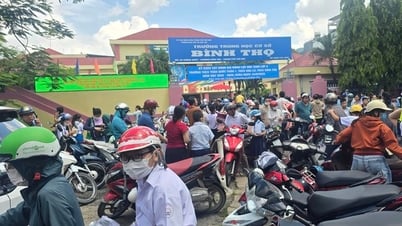


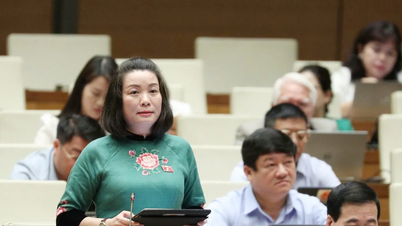
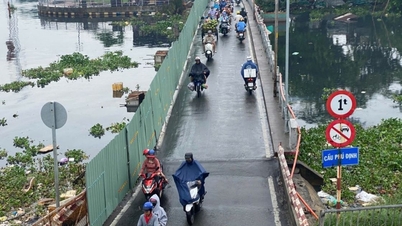

![[Photo] Prime Minister Pham Minh Chinh receives a bipartisan delegation of US House of Representatives](https://vphoto.vietnam.vn/thumb/1200x675/vietnam/resource/IMAGE/2025/5/28/468e61546b664d3f98dc75f6a3c2c880)


















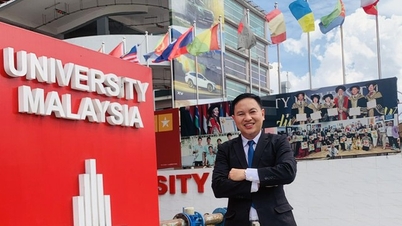








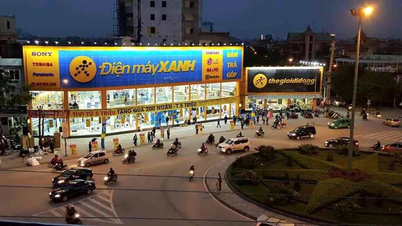
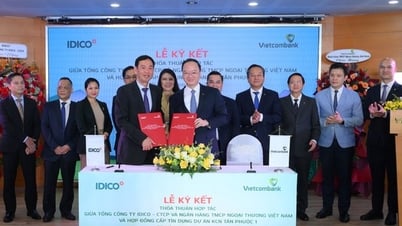





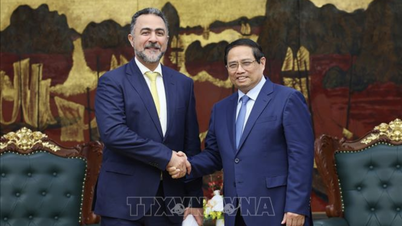


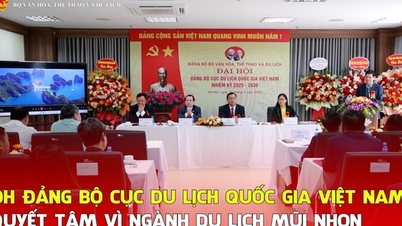

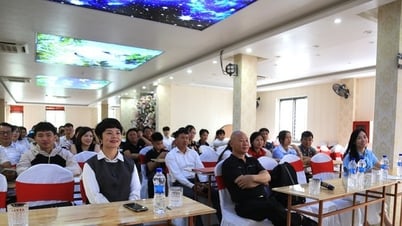


















Comment (0)